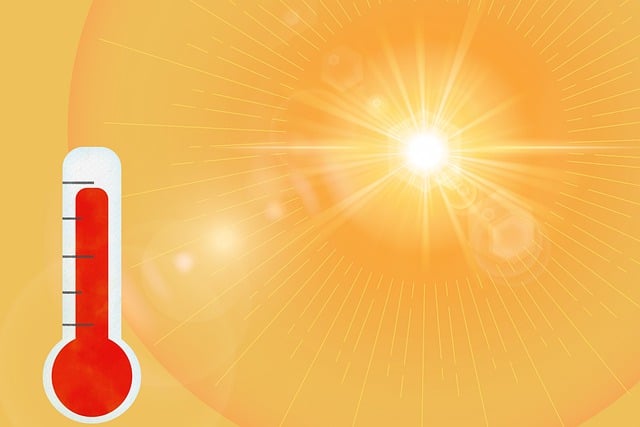The Scorching Impact: How Heatwaves Affect the Human Body
Nature WorldWide May 26, 2024 0
Heatwaves are becoming a significant health concern as global temperatures rise. These prolonged periods of extreme heat can have various adverse effects on the human body, sometimes leading to serious health emergencies. Understanding How Heatwaves Affect the Human Body can help us take the necessary precautions to stay safe.
1. Dehydration

One of the most immediate effects of a heatwave is dehydration. High temperatures increase the rate at which our bodies lose water through sweat. If this lost fluid is not replenished, dehydration sets in, leading to symptoms such as dry mouth, dizziness, dark urine, and extreme thirst. Severe dehydration can cause serious complications like kidney stones, urinary tract infections, and even kidney failure.
Read More: Beat the Heat: How to Stay Safe During a Heatwave
2. Heat Exhaustion

Heat exhaustion occurs when the body cannot cool itself efficiently, leading to a rise in internal temperature. Symptoms include heavy sweating, weakness, cold and clammy skin, fast and weak pulse, nausea, vomiting, and fainting. While heat exhaustion is not life-threatening if treated promptly, it can progress to heat stroke if ignored.
3. Heat Stroke

Heat stroke is a severe condition that requires immediate medical attention. It happens when the body temperature rises above 103°F (39.4°C) due to prolonged exposure to high temperatures and the failure of the body’s cooling mechanisms. Symptoms include a throbbing headache, dizziness, lack of sweating despite the heat, red, hot, and dry skin, muscle weakness or cramps, nausea and vomiting, rapid heartbeat, confusion, and unconsciousness. Without prompt treatment, heat stroke can damage the brain, heart, kidneys, and muscles, potentially leading to death.
Read More: Therapy in Nature: 8 Mental Health Benefits of Nature Exposure
4. Heat Cramps

Heat cramps are painful, involuntary muscle spasms that occur during heavy exercise in hot environments. They are often related to dehydration and loss of electrolytes through sweating. Commonly affected muscles include those in the abdomen, arms, and legs. Replenishing fluids and electrolytes can usually alleviate heat cramps, but they are an indication that the body is struggling to cope with the heat.
5. Heat Rash

Heat rash, also known as prickly heat, occurs when sweat ducts become blocked and swell, leading to discomfort and itching. It appears as a red cluster of pimples or small blisters, typically on the neck, upper chest, groin, under the breasts, and in elbow creases. Keeping the skin cool and dry can help prevent and treat heat rash.
Read More: 11 Best Natural Foods for Good Health
6. Cardiovascular Strain

The cardiovascular system works harder during a heatwave. To cool the body, the heart pumps more blood to the skin, which can strain the heart, especially in individuals with preexisting heart conditions. This increased workload can lead to complications such as chest pain (angina), heart attacks, or heart failure.
7. Respiratory Issues

High temperatures and air pollution often go hand in hand during heatwaves, exacerbating respiratory conditions like asthma and chronic obstructive pulmonary disease (COPD). Heat can also cause the airways to constrict, making it harder to breathe and increasing the risk of respiratory infections.
Read More: How Nature Benefits Mental Health
8. Impaired Cognitive Function

Extreme heat can affect brain function, leading to confusion, irritability, and poor decision-making. These cognitive impairments are particularly dangerous because they can prevent individuals from recognizing the symptoms of heat-related illnesses and taking appropriate action.
Conclusion
Heatwaves pose a significant threat to Human Health, affecting nearly every system in the body. The best defense against the dangers of extreme heat is prevention: stay hydrated, remain in cool environments, limit physical exertion during peak heat, and be aware of the signs of heat-related illnesses. By understanding the effects of heat waves on our bodies, we can take steps to protect ourselves and mitigate the risks associated with these increasingly common weather events. Stay safe, stay cool, and keep informed about the best practices for surviving the heat.




